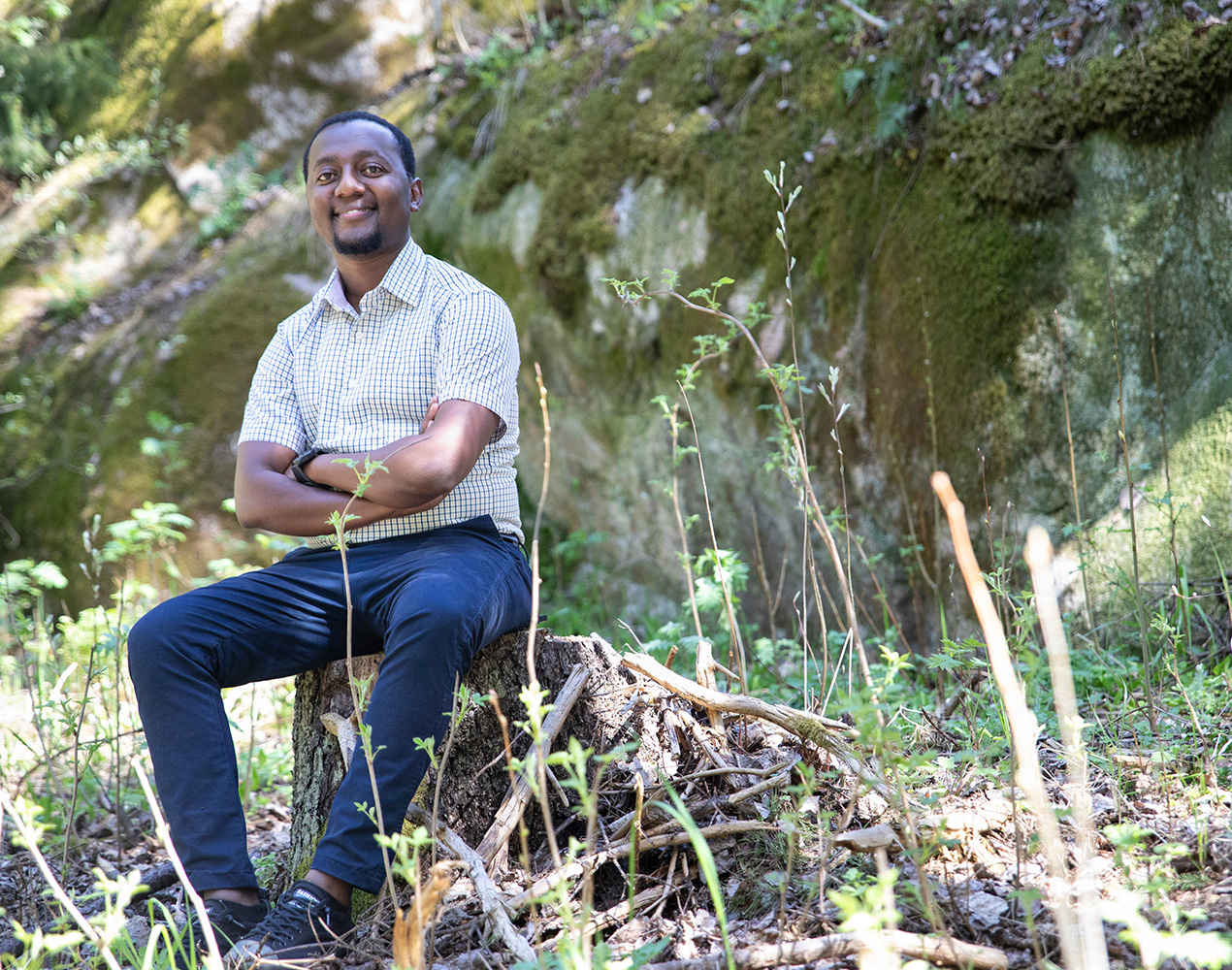“It is not easy to be at the negotiating table with developed countries and look for solutions while realising that these solutions are largely influenced by political and economic considerations that affect the negotiations. We may not get to the solutions that would be perfect and ideal to make the needed shifts right now, because compromises are made. Making compromises is devastating and does limit ambitious climate action,” Julius Mbatia says.
“If we do not reduce our emissions, we will be living at dangerous temperature levels with huge implications. It particularly affects Africa, where life will not be the same.”
Mbatia shares his personal views on what developed countries should do. Firstly, they must reduce their emissions. “Both historically and today, they are big polluters. A large proportion of developed countries benefit from the oil industry.”
Developed countries must also provide funding to developing countries that have contributed least to the climate crisis and are particularly vulnerable to its effects. These countries should be given funding to cope with climate impacts. Developing countries also need support in the transition from a fossil economy to a green economy that is sustainable for the planet and people.
“Developed countries should also address the political challenges at home that prevent them from making climate-relevant decisions. We have seen strong political movements emerge in developed countries that do not recognise the climate emergency and oppose climate action. This, in turn, has a negative impact on multilateral climate and sustainable development work,” Mbatia says.
Africa must protect its forests
According to Mbatia, the climate crisis also requires action from Africa. In Mbatia’s own view, Africa should protect its ecosystems such as forests. “Africa has one of the world’s largest natural resources: African countries should sustainably manage including preserve their forest reserves and replace lost forests with new ones.”
According to him, Africa also has the potential to model and create a sustainable economy and open markets for green innovations and industrialization.
“Our continent has one of the youngest populations in the world. At the same time, we are experiencing a massive migration to cities, which is putting pressure on public services. Africa needs to make a plan for green, resilient and sustainable growth that doesn’t harm our planet.”
According to Mbatia, Africa must take climate change into account in all economic and other planning. Climate change must be seen as a cross-cutting issue affecting all sectors of the economy. Africa cannot do this on its own, and needs both financial and technical support.
“Thirdly, Africa must demand changes to the global financial system so that it serves all people and countries. The financial architecture should also involve the most vulnerable, least developed countries and emerging economies equally.”
By financial system, Mbatia refers to the existing financial arrangements and institutions such as the International Monetary Fund (IMF), the World Bank and private companies that, for example, assess the creditworthiness of countries.
New study highlights organisations’ work in preventing climate damage
Mbatia also works as a climate expert in the ACT alliance, a network of church development actors. He is visiting Finland at the invitation of ACT’s member the Finnish Evangelical Lutheran Mission (Felm). The Felm has been involved in ACT’s new report, which charts the work of its member organisations related to loss and damage. The Felm´s projects include a project to improve the position of people with disabilities in the climate crisis in Rwanda and Burundi and a project to improve the climate resilience of communities in Zimbabwe. The projects are supported by Finland’s development cooperation funds.
Niko Humalisto, Leading Advocacy Specialist at Felm, considers the study an important path in the climate destruction debate.
“It highlights that organisations can support people in minimising climate damage and recovering from it. The study shows that the use of local know-how is very important. This challenges the traditional top-down way of making climate policy. The study also highlights the selective nature of climate destruction: discriminated people, such as people with disabilities, are more vulnerable to disasters,” Humalisto says.
The study highlights that churches and Christian organisations have a unique role in climate work: they have the trust of the community, they act on the ground, involving communities. Therefore, their work genuinely responds to local needs and the results are sustainable.
Text: Minna Havunen

